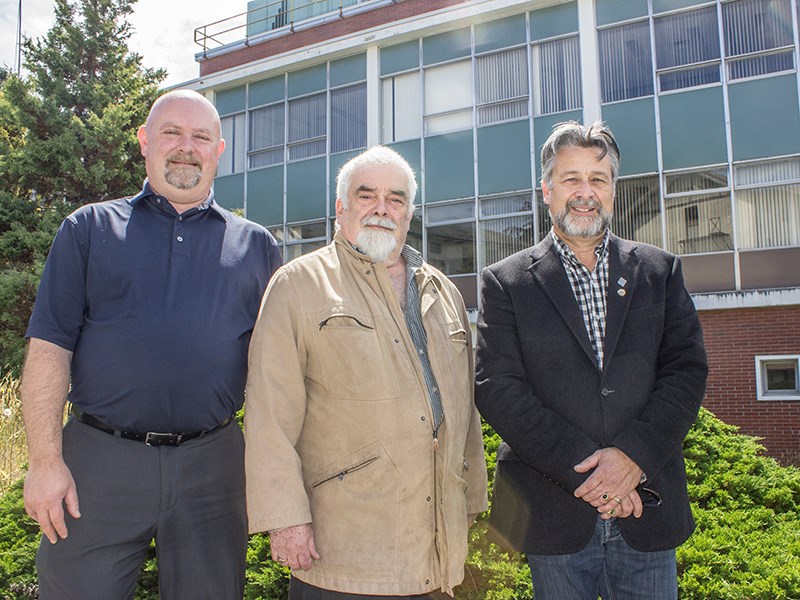A Powell River licensed medical-marijuana facility is one step closer to production, according to a media release from City of Powell River and True Health Company.
True Health and the city announced on Friday, June 17, that Health Canada had issued notification that it will be moving into the final stage of the approval process for a Powell River facility and product-testing laboratory.
“I’m really happy,” said mayor Dave Formosa. “It has been a long haul and it just shows that perseverance and working hard pays off.”
Three years ago, True Health, also known as Santè Veritas Therapeutics, applied to the federal government and began the process to become a licensed producer for its marijuana for medical purposes regulations program.
True Health signed a memorandum of agreement with the city for a potential partnership, city support for True Health’s application and a lease of the former Catalyst Paper Corporation administration building. The city acquired the building in 2011 after agreeing to give Catalyst a reduced rate on its municipal taxes.
True Health’s Powell River project manager Bob Poore said the company began looking into how to participate in the Health Canada program four years ago.
“It’s been a grind conforming to everything Health Canada wanted,” said Poore. “We’re pretty comfortable now that we can deliver everything they need at the point of inspection. That’s a combination of putting the right people in the right places and knowing what Health Canada wants.”
In the first phase of production, the company expects to have 12,500 square feet of growing space and produce 2,800 kilograms of dried marijuana with an estimated value of $19 million per year.
Formosa said that, despite the long process, the wait has been worth it and this development will bring jobs to Powell River and generate new property tax and lease income for the city.
“We could have been discouraged and tried to do something else with the building,” said Formosa. “We were getting to that point where we had to start taking stock, but we saw signs in the last six months that things were improving; we’re glad we persevered.”
According to True Health’s application to Health Canada, the facility is expected to create between 35 to 40 jobs in its first phase of operation.
According to Scott Randolph, city manager of economic development, True Health intends to lease the building and will hire local firms and suppliers during its $3-million renovation plans and for its ongoing operation, which is estimated at $2 million annually.
True Health is currently negotiating the lease for the building and will start preparing for the requirements of Health Canada’s pre-licence inspection. The company aims to develop a number of varieties of medicinal cannabis to address specific patient needs and advance the use of cannabis as a medical alternative, according to the media release.
Thirty cultivation licences have been issued to 27 companies across the country with seven in BC, according to Health Canada. Nanaimo-based medical-marijuana producer Tilray received the first federal permit to export medical marijuana overseas.
The establishment of the Powell River facility comes at a transitional time for medical marijuana in Canada. While it is thought that Health Canada producers will play a role in producing for the recreational-user market, the future of the industry is uncertain.
Government of Canada has until August to establish new regulations. Federal health minister Jane Philpott has not said whether revised rules will continue to allow patients to plant their own marijuana.
In April, Philpott announced that the government intends to introduce legalization legislation in spring 2017. Toronto MP Bill Blair, former police chief for that city and current parliamentary secretary to the minister of justice and attorney general, is leading a task force on how to legalize, regulate and restrict access to marijuana. That task force is expected to report to the government in November on its findings after discussions with industry experts and Health Canada’s licensed producers.
It is expected that licensed producers will provide the model for how marijuana will be made available for the recreational market.



